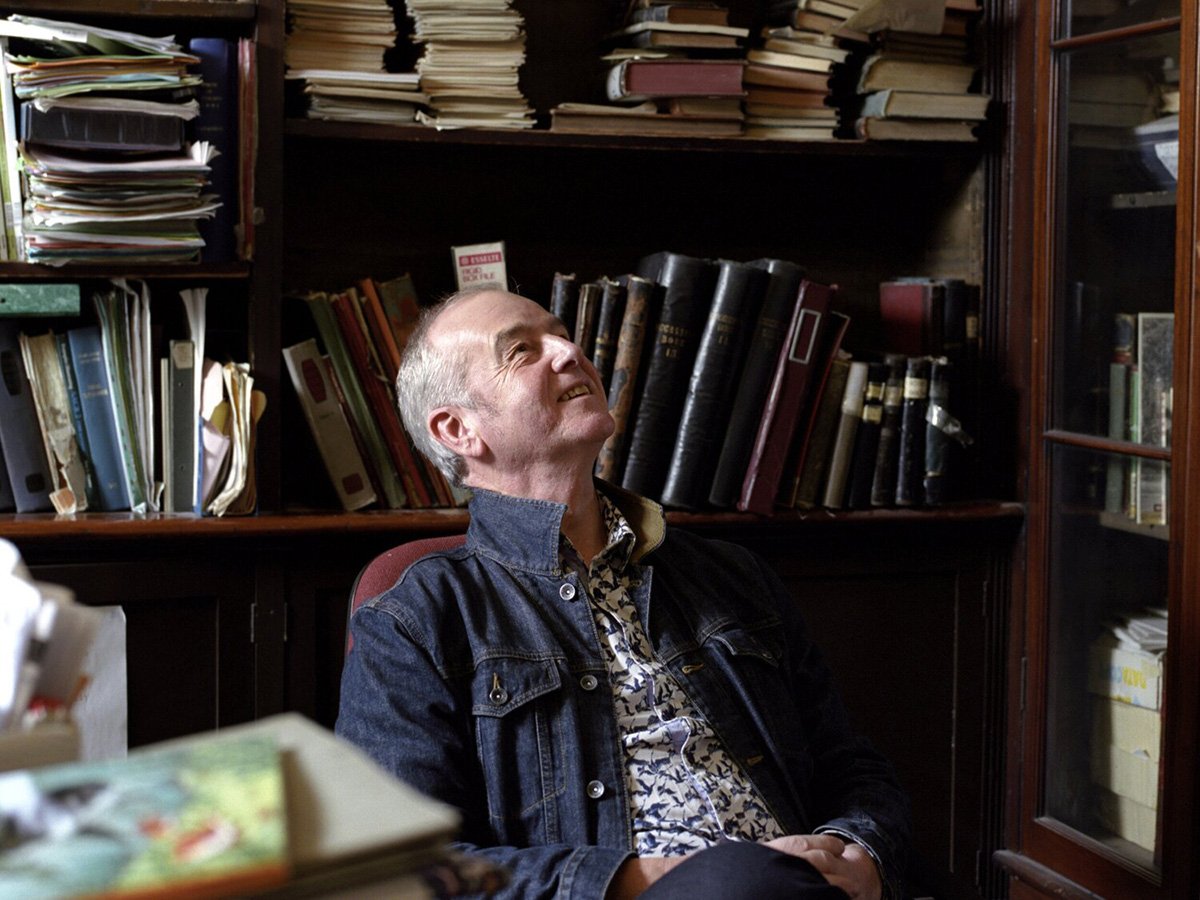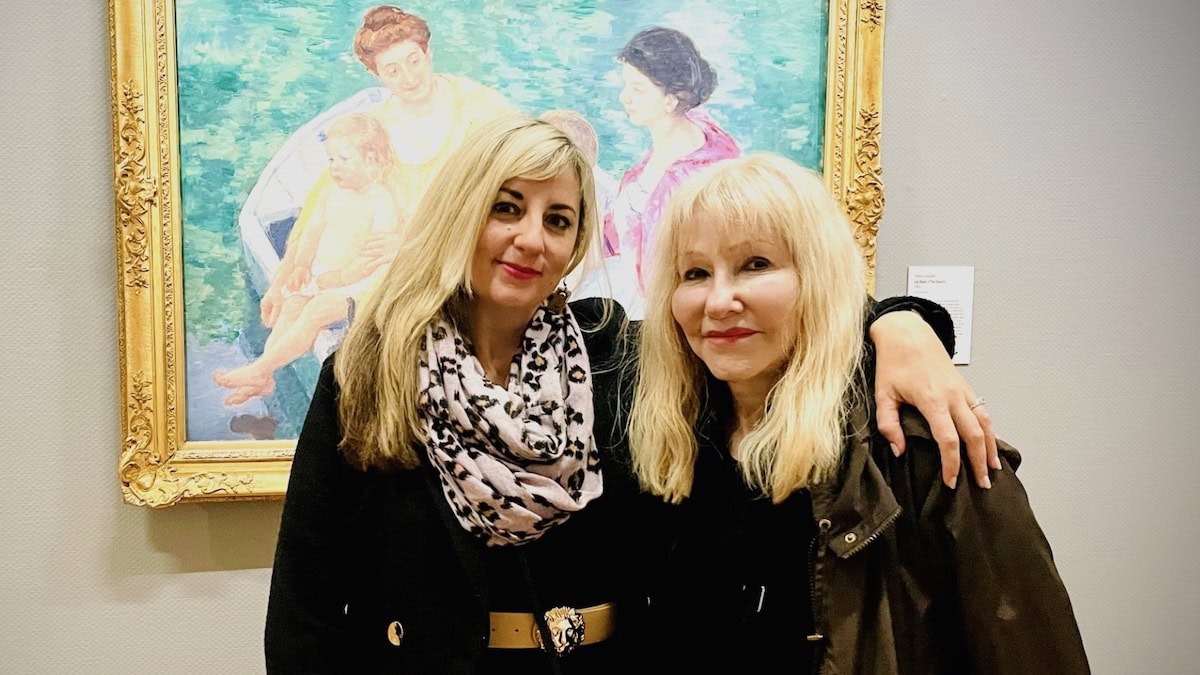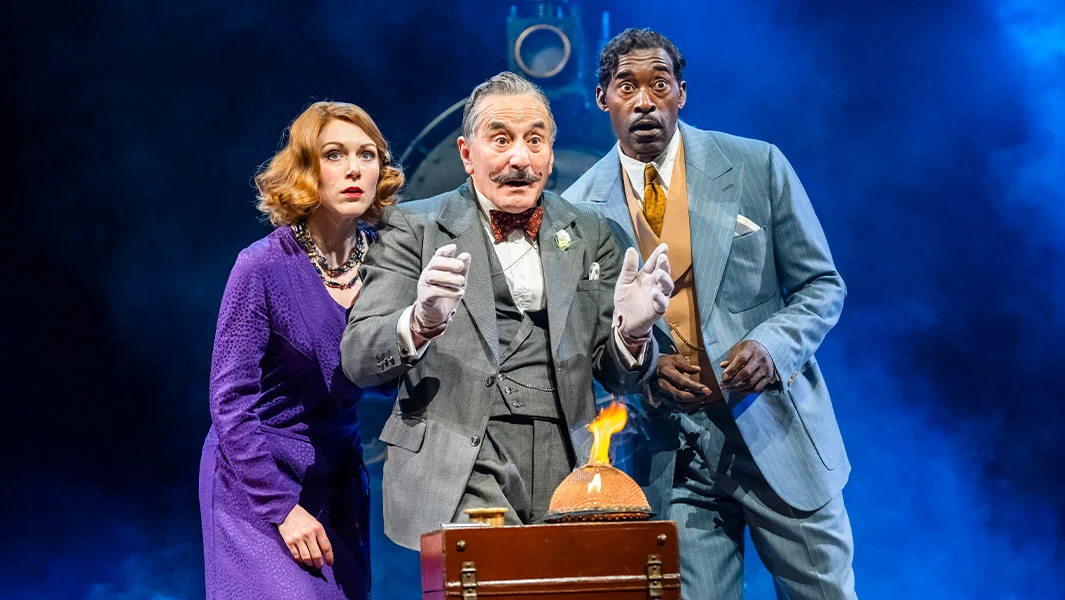
David Almond is the children’s author behind Skellig, My Dad’s a Birdman, Heaven Eyes, The Savage and many other novels and plays, all of which have delighted the imagination of younger and older audiences alike.
Here we discuss his journey to becoming a writer, and what has influenced his stories over the years.
What was it that first inspired you to write children’s fiction?
I didn’t really plan it. I began by writing for adults – short stories that were published in little magazines or broadcast on radio, a novel that was rejected by every UK publisher, then I wrote a series of short stories, Counting Stars, that grew from my own Tyneside childhood. They were written, I thought, for adults, but as I wrote, I re-experienced the physical, intellectual, emotional life of a child. There was a new clarity, strength and lightness to my writing. When I finished them, a new story, Skellig, came to me out of the blue. As I began to write it, I knew it had grown out of everything I’d written before, that it was probably the best thing I’d ever written, and to my astonishment I realised that it was a novel primarily for young people. I felt a sense of excitement, possibility, and liberation. Since then, I’ve written many books, plays, stories for the young.
Plays such as Skellig and My Dad’s a Birdman use surrealist elements to look at emotional topics, such as bereavement and fear of loss. What’s your approach, and how does it make these big topics feel more accessible to your audience?
Again, this isn’t really a decision. Yes, my work has elements that might be surreal or magical, but it is always grounded in a real world of realistic believable characters. For instance, My Dad’s a Birdman does have some rather whacky folk in it — Mr Poop, and the entrants to the Great Human Bird Competition — but at the heart of it is a loving, troubled, ordinary little family experiencing a very recognisable and familiar emotional drama. The same goes for Skellig; an ordinary family in an ordinary place, a story narrated by a boy who is trying to cope and come to terms with massive, troubling changes in his life. Into this ‘ordinary’ world comes an extraordinary being, Skellig.
I suppose the surrealism helps me, and my characters, to dramatise the often weird nature of such feelings. It allows for a way of writing about difficult topics without them becoming too anguished or dark. Maybe all storytelling is an attempt to give form to experiences and feelings that on their own can seem inexplicable and at times almost unbearable. Stories bring narrative, shape, rhythm and humour into our lives. They help us to share our lives with others, so that we can understand each other, and ourselves, a little better. And I guess the surrealism reflects my own sense of the weirdness of our world, and of all of us who live in it.
When people talk with me about the mysteriousness of Skellig, I always ask them, but what about you? Aren’t you just as mysterious in your own way?
There are certain plays that are slightly darker in tone, such as The Savage and Heaven Eyes. Is it difficult to strike the right level of darkness when working on stories for a younger audience?
It’s a matter of trusting the characters, really. Good characters really do have a life and power of their own. Yes, a character is ‘created’ by the author, but if the creation is any good, it begins to grow like a living thing, and to have its own authenticity. Blue Baker in The Savage, and Erin and her friends in Heaven Eyes, have gone through some dark, yet very recognisable, experiences. So the young characters are my guides — they help to set the tone.
I really admire the central characters in these plays. They seem to me to have great courage and optimism, an ability to love, and to have a powerful inner light. They are in the process of growing up in a mysterious, difficult and wonderful world. They are striving to explore and to transcend their difficulties and to achieve happiness and freedom and, by the end, they really have begun to do this.
There are a lot of very real-life themes in your work that we can all connect to. Is there a topic that you’re eager to approach but haven’t yet had the chance to?
I’m never sure what the topic or theme will be until I have a character coming to life in a vivid world. The themes emerge from the character, their actions, experiences, dreams etc.
For instance, at the moment I’m working on a story which has a boy, a crab, a pier and an astronomer in it. I’m not really sure what it’s about yet, but it seems to have lots of dramatic energy in it, and I sense that there’s some powerful underlying theme, but that will only develop and become more apparent as the story develops. Like all writing, this is a journey of exploration and discovery. Could be, of course, that the whole thing comes to nothing, and I’ll just have to put it aside and find another tale…
What would be your number one piece of advice for anyone wanting to stage one of your plays?
Ah, difficult to have a number one… However, discover the hope and joy and light that is in each of these plays; work as an ensemble, not as a group of isolated individuals; hear the rhythms in the language; be brave; be truthful; reach out, move the minds and touch the hearts of your audience; make something beautiful.
Why not purchase copies of Skellig, Heaven Eyes, My Dad’s a Birdman and The Savage today!
To find more adaptations of children’s stories, visit our collection here.
Photo: Donna Lisa Healy

Mother-Daughter Scholars Dr. Rosary O’Neill and Dr. Rory O’Neill Schmitt Celebrate Success in Ireland

Agatha Christie’s And Then There Were None: Meet the Characters

